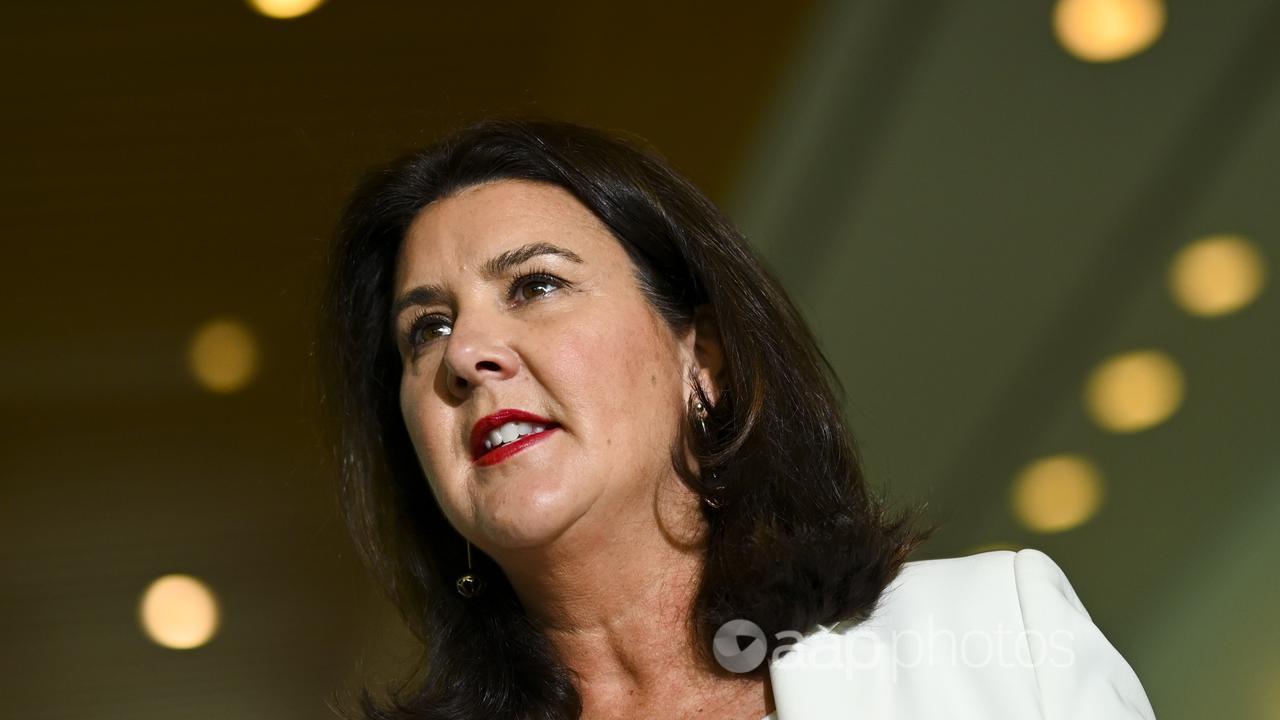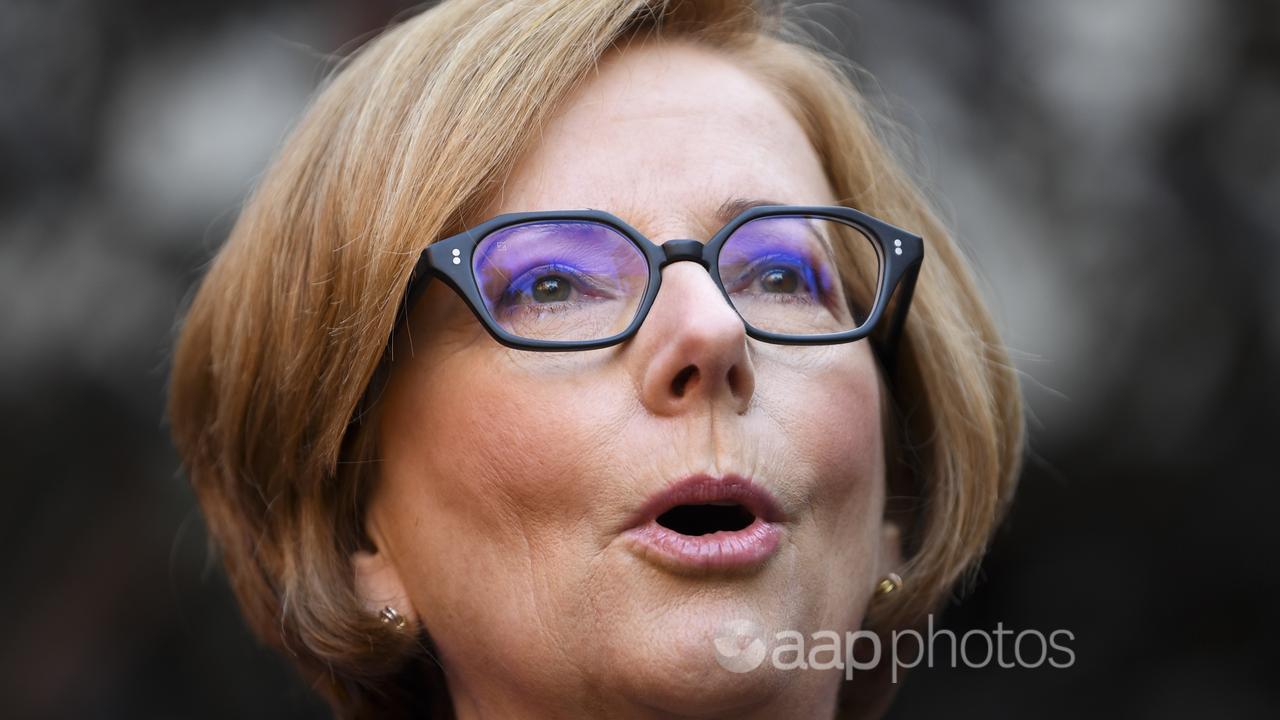Despite leaving office with record debt, the shadow finance minister has defended the coalition’s record by claiming her party cut the budget deficit by $103 billion in the last term in government.
Senator Jane Hume made the claim on ABC’s RN Breakfast on July 21 in response to a question about where her party believed the Albanese government should cut spending.
Senator Hume replied: “Well, that’s up to the Labor government. In fact, in the last term of the coalition government, we cut a record amount off the budget deficit – $103 billion over four years.”
When asked for clarification, a spokeswoman for Senator Hume told AAP FactCheck that she was referring to the cumulative reduction in forward deficit projections, meaning the difference in how much debt was to be added to the budget over forward estimates according to the 2022-23 budget paper compared to the estimate in the previous Mid-Year Economic and Fiscal Outlook (MYEFO).
The spokeswoman also clarified that Senator Hume meant to say the cut in deficit would occur over five years, not four.
Table 3.1 of the 2022-23 Budget Paper No.1 (page 74) shows that the estimated impact of the next five years of budget deficits, also known as underlying cash balance, was a $304.5 b increase in government debt, compared to the estimate in the previous MYEFO of a $408.1b increase – a $103.6b improvement.
However, economists told AAP FactCheck that Senator Hume was misleading by suggesting the coalition was responsible for the improvement. They said the coalition's policy decisions actually added to the budget bottom line, and the reduction in the estimated deficit was attributable to non-policy factors.
Moreover, the improvement is only in projected deficit and, over the length of the coalition's last term, the actual deficit rose from $0.7b to $134.2b, according to the 2022-23 budget papers.
Professor John Quiggin, an economist at the University of Queensland, said the budget papers make clear that external factors, such as commodity prices and a faster than expected recovery from COVID-19, were the cause of the positive revision in the deficit outlook, offsetting the increase in government spending.
Prof Quiggin highlighted page 6 of the budget papers, which state: "The strength of the economy, and in particular the labour market, combined with higher near-term commodity prices, has driven large upward revisions to tax receipts and reductions in unemployment benefit payments."
This implies the reduction in deficit was caused by "parameter variations not policy," he told AAP FactCheck via email.
Economist Saul Eslake explained that Table 3.3 of Budget Paper No.1 (page 86) differentiates between changes attributable to policy decisions and parameter variations, defined as changes "outside the direct control of the government".
"The net impact of 'parameter variations' between the 2021-22 MYEFO and the 2022-23 Budget was to reduce projected deficits over the four years 2022-23 through 2025-26 by $114,613 million (or, over the five years 2021-22 through 2025-26, by $142,899 million)," Mr Eslake said in an email.
"Whereas, by contrast, the net impact of 'policy decisions' between the 2021-22 MYEFO and the 2022-23 Budget was actually to increase projected deficits by a total of $30,419 million over the four years 2022-23 through 2025-26 (or, over the five years 2021-22 through 2025-26, by a total of $39,280 million."
When asked whether the coalition was in part responsible for underlying economic factors that led to a better than expected post-COVID recovery, Mr Eslake told AAP FactCheck: "That is a very different proposition. One which may have some substance but which I very much doubt goes anywhere near fully accounting for those favourable 'parameter variations', given the roles played by (among other things), the quicker-than-initially-hoped-for discovery and distribution of safe and effective vaccines against COVID-19, the strong recovery in the world economy, and the economic stimulus also provided via the Reserve Bank's monetary policy."

Fabrizio Carmignani, a professor of economics and Dean of Griffith University Business School, agreed it was misleading for the coalition to claim credit for the external factors that reduced the deficit outlook.
"One might argue that some of these factors could be influenced by other macroeconomic and social policies of the government," Prof Carmignani said via email. "But the extent to which this is the case is not established."
He added: "The statement of Hon. Hume points to a clear direct link between the action of the coalition government and the cut in the budget; if existing, this link should be visible from the policy decisions, but this is not the case based on the data provided in Table 3.3. of the Budget Paper."
Prof Quiggin agreed and added: "I don't think governments can claim responsibility for parameter variations. Most of it is the rapid global recovery from restrictions."
Experts said it was also misleading for her to claim to have made the cut when talking about forward estimates.
Mr Eslake said forward estimates are "always subject to significant margins of uncertainty" while Prof Carmignani said they are "always incorrect".
Matt Grudnoff, a senior economist for the Australia Institute, said via email that the actual deficit may end up being larger than predicted.
"This change in the deficit has not happened and it will almost certainly be revised again," he said. "We will not actually know until sometime after 2025-26.
"So Senator Hume is claiming credit for a change in a prediction, not an actual change in what happened to the budget bottom line."
The Verdict
Senator Hume's claim the coalition cut a record $103b off the budget deficit in its last term in government is misleading. The Treasury did find the projected deficits are likely to be $103b lower than expected over the next five years, however this is only an estimate and due to changes in external factors, not government policy.
Misleading – The claim is accurate in parts but information has also been presented incorrectly, out of context or omitted.
* AAP FactCheck is an accredited member of the International Fact-Checking Network. To keep up with our latest fact checks, follow us on Facebook, Twitter and Instagram.
All information, text and images included on the AAP Websites is for personal use only and may not be re-written, copied, re-sold or re-distributed, framed, linked, shared onto social media or otherwise used whether for compensation of any kind or not, unless you have the prior written permission of AAP. For more information, please refer to our standard terms and conditions.


















